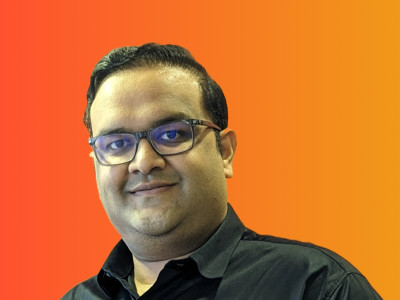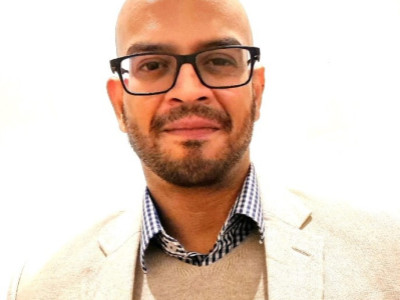The case of keeping 2 yards’ distance - Predicting changing consumer behaviours
TBWA India’s Bianca Joseph and Krishnan Subramanian analyse how consumer behaviours are changing due to the pandemic, especially the impact of physical distancing and the craving for real experiences.
As we navigate through a different normal, physical distance has brought the world emotionally closer. It has rewritten all known norms of socialising. But what do these changing norms mean for a country like India that has never been big on personal space?
Think about how close we stand to each other in any queue, how we jostle to get ahead and how we think nothing of physical etiquette in public spaces. What happens when a country that has proximity as its DNA goes into lockdown mode?
They say, when people go through a crisis together, it has a lasting impact on their behaviour. And in this case, the mastermind behind this change seems to be the concept of Distance. Every change in behaviour in these Covid times, personal or professional, can be attributed to our understanding of Distance.
Physical distancing has had a ripple effect on many of our behaviours. As we ride out the Covid storm and find new ways to do old things, which of these behaviours will become mainstream?
In the pre-Covid era, life was an interactive and interpersonal experience. But as interpersonal becomes extinct, the lockdown has pushed us into a world full of screens. Screens have become our only option for entertainment and interaction. Date nights, office meetings, a trip to the museum and even temple darshans have gone virtual. This experience has vaporised the real out of peoples’ lives overnight. Every experience has turned 2D.
People are already expressing the need for deeper person-to-person connection through home art. They are eager to get back to sight-seeing over site-seeing. When the all clear is given, people will be more eager than ever to step out into the world. With abundant caution and physical distancing, of course!
Our first prediction is that, in a lonelier and more automated world, real experiences will gain importance over virtual treats.
Secondly, distance or isolation has become a catalyst to become even more independent. Think about life before Covid. Were you independent then, or are you even more independent now? As independent as we would like to think of ourselves in the pre-Covid times, we depended on many people to make our lives more convenient and take care of our basic daily chores. However, the virus has gotten CEOs dusting and cleaning their homes. Now that’s a sight only a pandemic can show you!
The inability to depend on others is giving people a new super-power of sorts –one of Hyper Independence. Everyone has turned into accidental chefs, mixologists, bakers or even financial planners. They are their own fitness trainers and have even turned into teachers to home-school their kids.
To be more self-reliant in their daily lives, people are learning to look at life as a one-person task. That being said, they will still prefer expertise in certain aspects. But they will also try to gain autonomy over their life by learning how to do things on their own.
This leads to our second prediction. Physical Distancing will put an end to the Convenience Economy and propel a shift towards a more DIY Economy.
Speaking of the economy, Covid-19 has ensured that the average Indian is more concerned about financial wellness over health. The fear of a looming economic crisis won’t let them return to spending as usual. Instead, a more frugal consumer will emerge. But frugal doesn’t necessarily mean cheap. It doesn’t mean people will cut back on the things they love. Instead, it would become a conscious choice to spend on experiences that bring joy in the face of economic adversity.
Although a frugal future is what we are heading towards, this might not hold true at first. Abstinence from luxuries might lead to “Revenge buying”. To make up for lockdown blues there will be a sudden splurge of immediate post-Corona spending. However, this will be an emotional response to find a sense of control over the new reality.
Our third prediction is that, over time, impulsive shopping will be replaced by calculative spending behaviours.
Lastly, this article would be incomplete if we did not talk about how distance is ensuring that peoples’ lives move from ‘Go Solo!’ to ‘Solo Social’.
Singletons were the fastest growing household in the pre-Covid era. So much so that brands started catering to a market of one. But distance from the world is giving people more time with family. The lockdown has re-ignited connections.
Relationships that were once taken for granted are finding new meaning. Work-from-home zoned out from the daily hustle is creating a sense of nostalgia. People are reminiscing on memories from a time that doesn’t feel like it was two months ago. They are cancelling 2020 from their age in the hope of celebrating together again.
As an immediate consequence of this comes our fourth prediction – people who earlier wanted to escape the herd, will look forward to socialising and putting a lid on the aloneness economy.
Who knew a little distance could make so much of a difference to our behaviours? But the question remains. Will these behaviours become mainstream in a post-Covid world? Will they form part of what we think will be the new normal?
It is tempting to predict major behavioural shifts for this new normal. But it is also worth reminding ourselves that true change is notoriously difficult. History is proof that much of how we behaved before the pandemic, will remain true afterwards.
People are still navigating between new and old behaviours. The longer the pandemic goes on, the more likely these new behaviours will become established and self-sustaining. The changed behaviours that will survive the Covid will be those who add value to the pre-lockdown way of life.
सिरफ दो गज की दà¥à¤°à¥€ और जिंदगी बदली।Only two yards of separation has changed lives for everybody. Is this for the better? Only time will tell.


















Share
Facebook
YouTube
Tweet
Twitter
LinkedIn